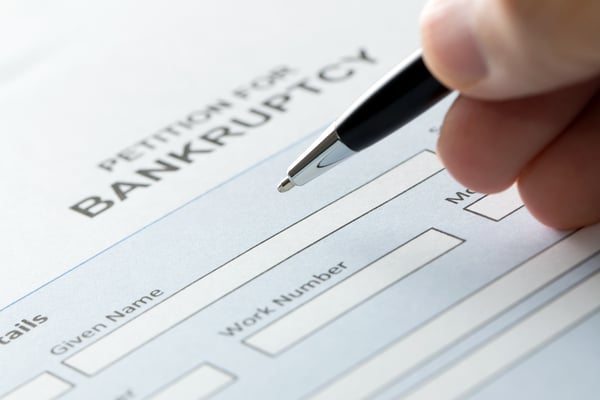
News, Insights, and more on Industrial IoT
The coronavirus pandemic has impacted healthcare organizations on multiple fronts.
Obviously, there are incredible challenges with battling an unfamiliar disease. Patient volumes have spiked in certain regions, quickly overwhelming staff and resources. Those on the front lines are constantly at risk, given their regular exposure. And in the hardest-hit places, physicians have to make impossible life and death decisions.
At the same time, hospitals and health systems are struggling financially to stay afloat while addressing the demands of COVID-19. Many have had to drop revenue-generating procedures and activities that typically fund ongoing operations. We’ve already seen 29 hospitals declare bankruptcy since the start of the year. As the pandemic continues, this number is likely to rise.

Many healthcare systems are facing Chapter 11 bankruptcy filings.
The reality for many hospitals is to continue treating patients, coronavirus-related or otherwise, they need to modify their cash flow strategies. Capital budgets are getting slashed across the industry to prevent defaults on credit arrangements. All the while, OSHA and ASHRAE (American Society of Heating, Refrigerating, and Air-conditioning Engineers) are bolstering guidelines to prevent spread in workplaces and patient care environments. Specifically, ASHRAE has recommended upgrading HVAC filtration systems to MERV-13 or 14 filter ratings.
Most hospitals already have adequate air filtration in critical wards, like inpatient surgery and intensive care units. However, to limit the transmission of COVID-19, facilities managers need to consider air quality in other areas, such as laboratories, and especially in common areas like waiting rooms, lobbies, and cafeterias.
As hospital leaders impose capital spending limits, Facilities Management groups are likely to see their budgets shrink. These groups are responsible for maintaining safe work and care environments, yet they may be unable to follow ASHRAE’s guidelines, given the cash flow challenges of fighting the coronavirus. We recognize that getting budget approval to improve HVAC performance for common areas is not an easy endeavor.
WellAware is now offering Clean Air Services in partnership with Purafil, a global leader in commercial filtration. Our services use remote monitoring to destroy up to 99.98% of airborne microbes, ensure air filtration uptime and effectiveness, and provide peace of mind to staff, patients, and families. For more info, visit our Clean Air Services page.
One lower-cost alternative to HVAC upgrades that hospital facilities managers can consider is air purification remote monitoring. Through this approach, facilities groups purchase portable filtration cabinets that function independently of HVAC systems. These standalone devices can be placed and moved easily throughout hospital buildings on an as-needed basis.
For example, the Purashield 500 Cabinet is perfect for use in smaller rooms up to 500 square feet in size. For bigger rooms, facilities managers can easily deploy several at once.
These air filtration cabinets also come with remote monitoring capabilities that enable staff to track purification uptimes, equipment statuses, and filter conditions, as well as order new filters in advance. Additionally, staff and patients can download a mobile app through the Apple Store or Play Store to track air quality in real time.
Hospital administrators can use insights from their air purification remote monitoring solutions to give patients, staff, and caregivers peace of mind that the right measures are in place to prevent the spread of the coronavirus. Even simple signage or placards can go a long way to calming fears in this difficult and stressful time.
Clean Air Services powered by Air Purification Remote Monitoring can offer a low cost solution for air filtration.
Overall, HVAC system upgrades can cost tens or even hundreds of thousands of dollars. Clean Air Services with remote monitoring capabilities, on the other hand, only cost a few hundred per month.
Facilities managers can provide safe occupancy to patients while creatively avoiding the need for capital outlay to upgrade heavy equipment. At a time when the healthcare sector is under tremendous pressure, Clean Air Services is one way that hospitals can protect their patients, families, and staff without breaking the bank.
Learn more about WellAware and our solutions here.
Like what you're reading? Sign up for updates!
Have a Question?